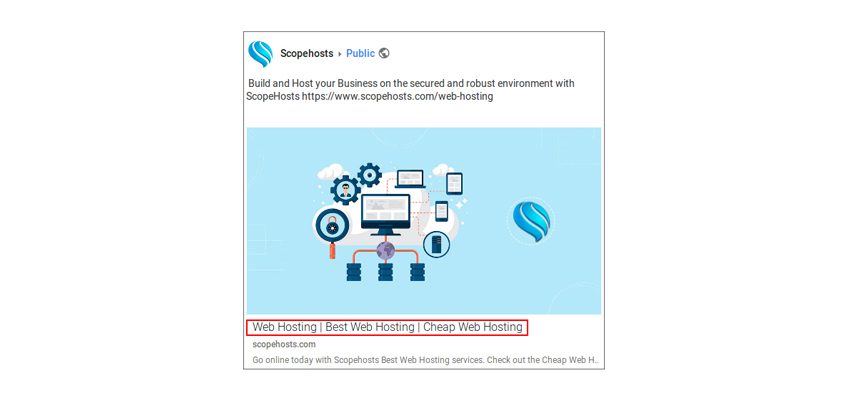The Title Tag has consistently been one of the single most important On-Page SEO factor. Before Search Engine Algorithms increased their complexity, the title tag was an easy way to try and determine the topic and relevancy of a page. Title tags are one of the best Return On Investment(ROI) SEO techniques because they are a low effort and high return task.
What is a Title Tag?
Technically a title tag termed as an HTML code element that specifies the title of a web page. Title tags are displayed on search engine results pages (SERPs) as the clickable headline for a given result.Title tags help the search engines to understand the content on the page.
An example of meta title tag in html code
<head>
<title> Title Goes here </title>
</head>
Here’s how it looks on Search Engine:

And when a page/post is shared on social media :

Why are Title Tags Important?
Search Engines crawl “Title Tag” before everything.
Title tags are most important ranking factors in SEO. Search engines searches the user query(keywords) in their title tag, then display results according to it.
- When a user searches for a keyword, he never reads all the results. He just scans through it.
- Title plays a prominent role in the decision of user on whether to visit your site or not.
- Title tag is one of the main thing in on page optimization.
-
In search engine like google, they search keyword and if you site title tag is not according to your site content then it is hard to find your site through search engine.
How to write a good title tag?
1. Never exceed title length above 70 characters including space but try to keep it 55-65 characters and under 512 pixel for best practices.
2.Try to put important keywords(generic keywords) first in your title.
3. Use only pipe (|) to separate your keywords, not dash (-), underscore (_) or other special characters.
4. Make your title tag meaningful and do not use stop words in your title like And,But,So,On ,Or, Was etc.
5. Avoid keyword stuffing in your title.
6. Titles & Branding - Brand your website at the end of the title tag,It can help click-through-rates immensely when users know the brand associated with the webpage.
7. Make your headline (H1 Tag) different from the title tag,as it will be the best opportunity to vary the keyword phrasing of your page and increase its chances of appearing for different search intent.
Auto-generation tool for title tags:Best plugins with Auto-generation functionality:
WordPress: Yoast; there’s a walkthrough (complete with a list of custom variables you can use in meta-tags) here. It’s pretty flexible.
Joomla: Tag Meta, the functionality appears similar to Yoast for WordPress.
Magento: According to this post, Magento handles title tags for category and product pages pretty well out of the box.
Does really Google rewrites title tags ?Yes, Google has a habit of occasionally rewriting title tags.
Google will automatically change how your title is displayed in the SERPs if their algorithm is under the impression that the page title doesn’t accurately represent the content on that page. If you are unhappy about any rewritten titles by Google, searchers do have the option of leaving feedback from the search results page.
How to overcome this - Make sure your title tag is with :
- Accurately describes the content on your page/post;
- Showcases the “qualities” people want to see;
- Tempt to click. If you can do this, why would Google ever rewrite it?
Conclusive Thoughts
Ideally,every page of your website should have a title tag that is unique to that specific page.With searchers using title tags to determine which listing they click on, an optimized and enticing title tag can increase click-through rates and greater brand awareness
If you have any other cool hacks or ideas for crafting perfect title tags? Let us know in the comments section



